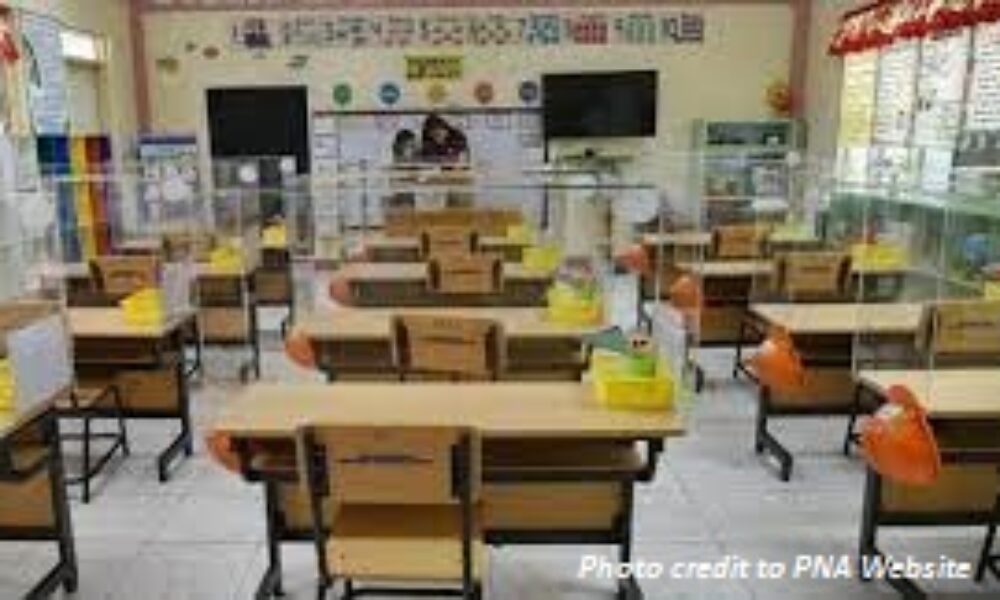
An additional 15 public schools from Western Visayas are joining the pilot implementation of the limited face-to-face (F2F) classes on December 6.
Hernani Escullar Jr., Department of Education Western Visayas (DepEd-6) information officer, in an interview Monday said the region submitted a list composed of 171 schools following the call of their central office to recommend more schools for the limited F2F classes on November 10.
The initial result came out with 17 schools on November 30 and was again trimmed down to 15 composed of seven school offering kindergarten to Grade 3 (K-G3), six for Grades 11 to 12 (G11-12), and one each for Grades 1 to 3 and Grade 12 on December 2.
Those offering K–G3 are the Banga Elementary School in Aklan; Taras Elementary School in Guimaras; and Hiyang Hiyang Elementary School, Aguntilang Elementary School, Colonia Divina Integrated School, Patag Diotay Elementary School, and Mauboy Elementary School, all in Negros Occidental.
For G11-12, the schools included Malinao School for Philippine Craftsmen in Aklan, Antique National School in Antique, Mabini National High School in Bacolod City, Valladolid National High School, and Victorias National High School in Negros Occidental, and Mulapula National High School in Iloilo province.
Meanwhile, the Alangilan National High School in Bacolod City is joining the limited F2F through its Grade 12 classes and Olotayan Integrated School in Roxas City in Capiz with its Grades 1 to 3 learners.
“In terms of classes, they still follow the stringent health standards as provided in the joint memorandum circular of the Department of Health and the Department of Education,” he said.
In the circular, kindergarten classes are allowed to have a maximum of 12 learners, Grades 1 to 3 will have 16 learners, and a maximum of 20 for Senior High School (SHS).
In terms of class hours, the kindergarten to Grade 3 will have a maximum of three hours while Senior High School will have four hours.
They also have to have a foot bath, non-contact thermometer, and handwashing area at the entrance of the school.
Learners have to proceed directly to their designated chairs and are not allowed to roam inside the classroom.
After class, the learners have to leave in an orderly manner, pass by the hand washing area, and proceed to their school’s designated exit area.
Escullar said that since the start, there are already 20 schools that are joining the pilot implementation composed of 18 public and two private schools.
He said the remaining 156 schools are also ready to implement the limited F2F classes, adding only a limited number is allowed by the DepEd.
“Those 156 schools already passed the schools safety assessment tool, have secured the concurrence of their LGU (local government unit), and parents’ consent. If there is an opening, we will immediately recommend these over 150 schools to the central office,” he added.
They are advised to also revisit their schools safety assessment tool (SSAT) from time to time to look into the criteria for possible amendment.
Meanwhile, the DepEd has not released yet additional guidelines for the expansion of pilot F2F classes from the private learning schools.
“We are just waiting for the mandate coming from our central office. Once there is guidance, we will comply,” he added. (PNA)






